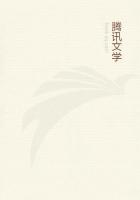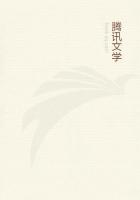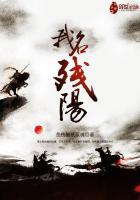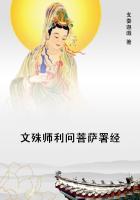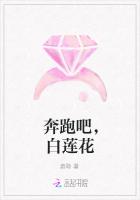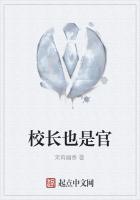"Did I call it my work? . . . It is partly yours also, for as a matter of fact it is built up from the precious anecdotes which you so ably and so generously related to me between glasses of that pleasant and mild vin de Grave and those crisp buttered biscuits."The Last Chouan proved a success. It was criticised and its merit was admitted. L'Universel shows the tone of most of the articles devoted to it: "After all, the work is not without interest; if reduced to half its length, it would be amusing from one end to the other. In general, the style is pretentious in almost all of the descriptive parts, but the dialogue is not lacking in naturalness and frankness."In 1829, after the publication of The Last Chouan, Honore de Balzac plunged boldly, under his own name, into the turmoil of literature. He pushed ahead audaciously, elbowing his way, and he made himself enemies. He went his own road, indifferent to sarcasms, mockeries, and spiteful comments called forth by his tranquil assurance and certainty of his own strength, which he did not try to hide. At a period when it was the fashion to sigh and be pale and melancholy, in a stage-setting of lakes, clouds and cathedrals, and when one was expected to be abnormal and mediaeval, Balzac displayed a robust joviality, he was proud of his stalwart build and ruddy complexion, and, far from looking to the past for literary material, his observing and clairvoyant eyes eagerly seized the men of his own time and transformed them into heroes.
All day long he went the rounds of publishers and editors, of papers and reviews, and sought connections with other writers of repute.
Returning in the evening to his study, he would write throughout the entire night, until long after the dawn had come, with feverish regularity and energy and without fatigue, ready to begin again the next day. When he gave up his printing house he went to live at No. 1, Rue Cassini, in a quarter which at that time was almost deserted, between the Observatory and the Maternity Hospital. He brought his furniture with him and fitted up his rooms in accordance with his own tastes and resources. This had called forth some bitter comments from his parents: What right had he to comfort and to something approaching luxury before he had cleared off his debts? "I am reproached for the furnishings of my rooms," he wrote to his sister Laure, "but all the furniture belonged to me before the catastrophe came! I have not bought a single new piece! The wall covering of blue percale which has caused such an outcry was in my chamber at the printing house. Letouche and Itacked it with our own hands over a frightful wall-paper, which would otherwise have had to be changed. My books are my tools and I cannot sell them. My sense of good taste, which enables me to make all my surroundings harmonious, is something which cannot be bought (unfortunately for the rich); yet, after all, I care so little for any of these things that, if one of my creditors wants to have me secretly imprisoned at Sainte-Pelagie, I shall be far happier there; for my living will cost me nothing and I shall be no closer prisoner than my work now keeps me in my own home."In spite of this apparent and wholly circumstantial disinterestedness, Balzac loved artistic surroundings, rugs, tapestries and silver ware.
He detested mediocrity, and could enjoy nothing short either of glorious poverty, nobly endured in a garret, or wealth and the splendour of a palace. Balzac shared his apartment with Auguste Borget, a painter and traveller, who was one of his most faithful friends. From a window in their parlour they could look across some gardens and see the dome of the Invalides. Ever since his childhood Balzac had made a sort of worship of Napoleon. He was his model and his great ambition was to equal Napoleon's exploits in the realm of the intellect. Mme.
Ancelot relates in the Salons of Paris that Balzac had erected a sort of altar, surmounted by Napoleon's bust, on which he had inscribed:
"What he began with the sword I shall achieve with the pen." This anecdote is confirmed by Philarete Chasle, who saw the statue in the Rue Cassini apartment, a plaster statue representing the emperor clad in his redingote and holding his celebrated lorgnette in his hand.
Napoleon's influence upon Balzac was profound, or rather there was a sort of parallelism between their two ambitions, each of a different order, but equally formidable. Balzac was essentially a conqueror and legislator. But he wished to establish his empire in the intellectual domain, for he believed that the time for territorial conquest was past; yet he wished to prescribe laws for the people and govern them himself. He was a born ruler, whether he turned to literature or politics, and he appointed himself "Marshal of Letters," just as he might have aspired to be prime minister to the king.
After the publication of The Last Chouan, Balzac's literary activity became prodigious. Shutting himself into his workroom and seated before a little table covered with green cloth, under the light of a four-branched candlestick, dressed in his monkish frock, a white robe in which he felt at ease, with the cord tied slackly around his waist and his shirt unbuttoned at the collar, he turned out, in a dizzy orgy of production, The Physiology of Marriage, the short stories constituting the Scenes of Private Life, At the Sign of the Cat-and-Racket, The Ball at Sceaux, The Vendetta, A Double Family, Peace in the Household, Gobseck and Sarrasine, besides studies, criticisms and essays for newspapers and magazines.

